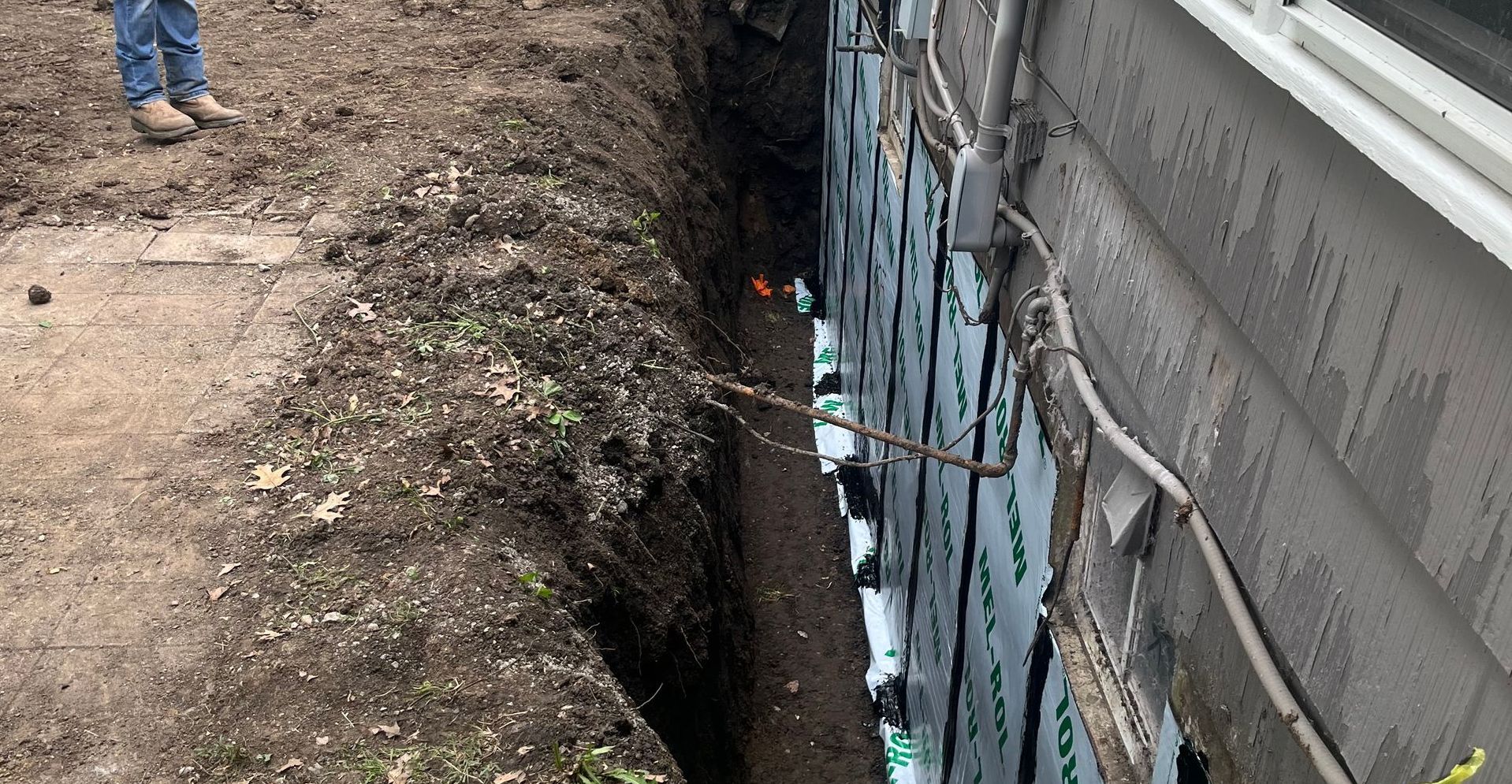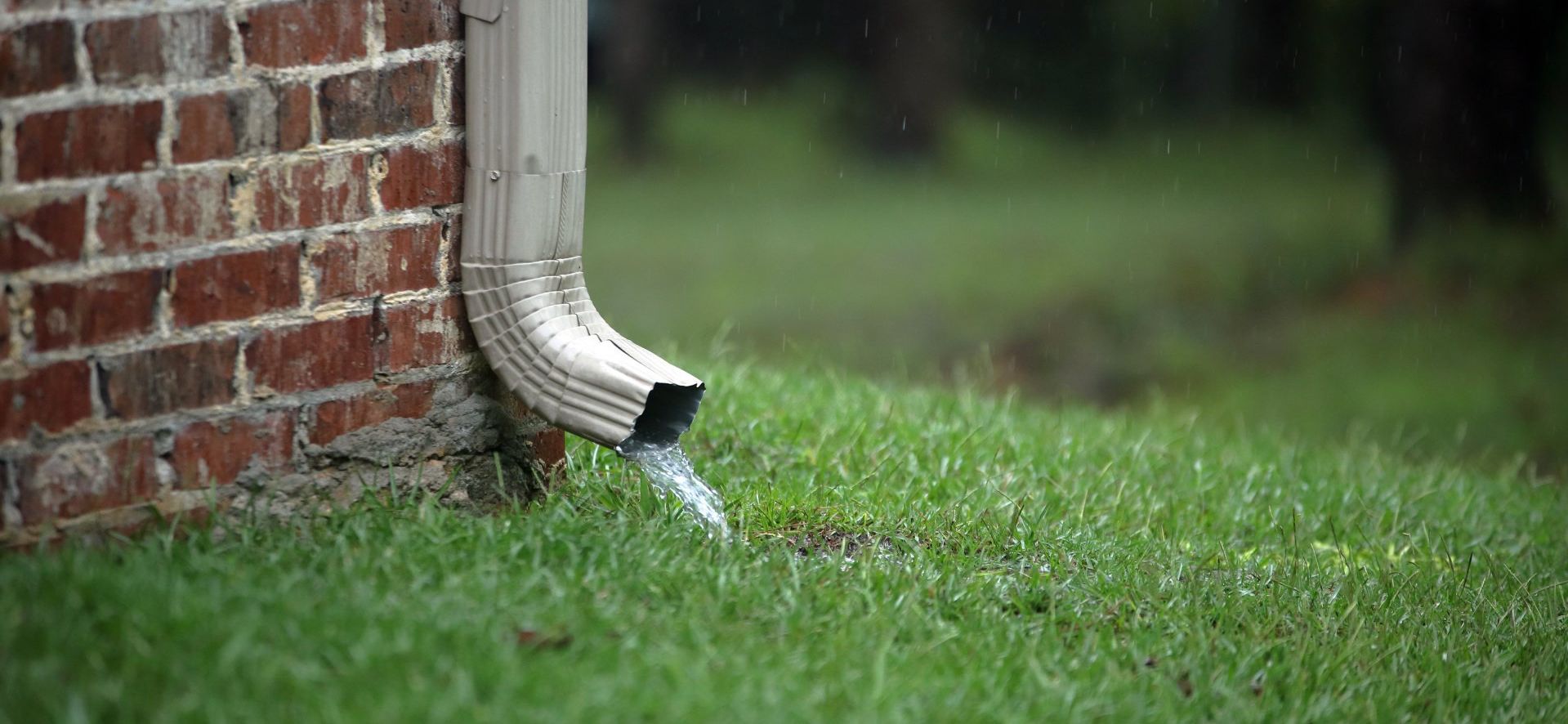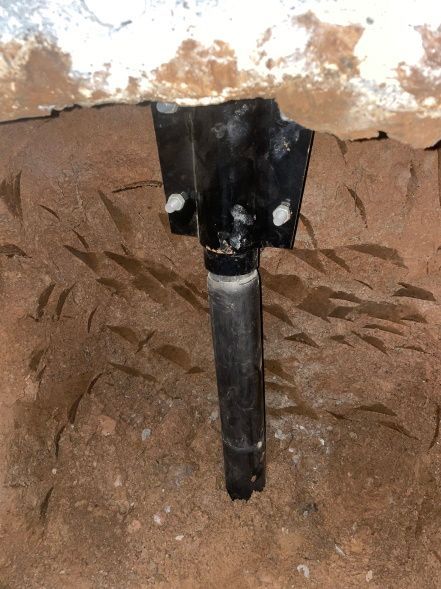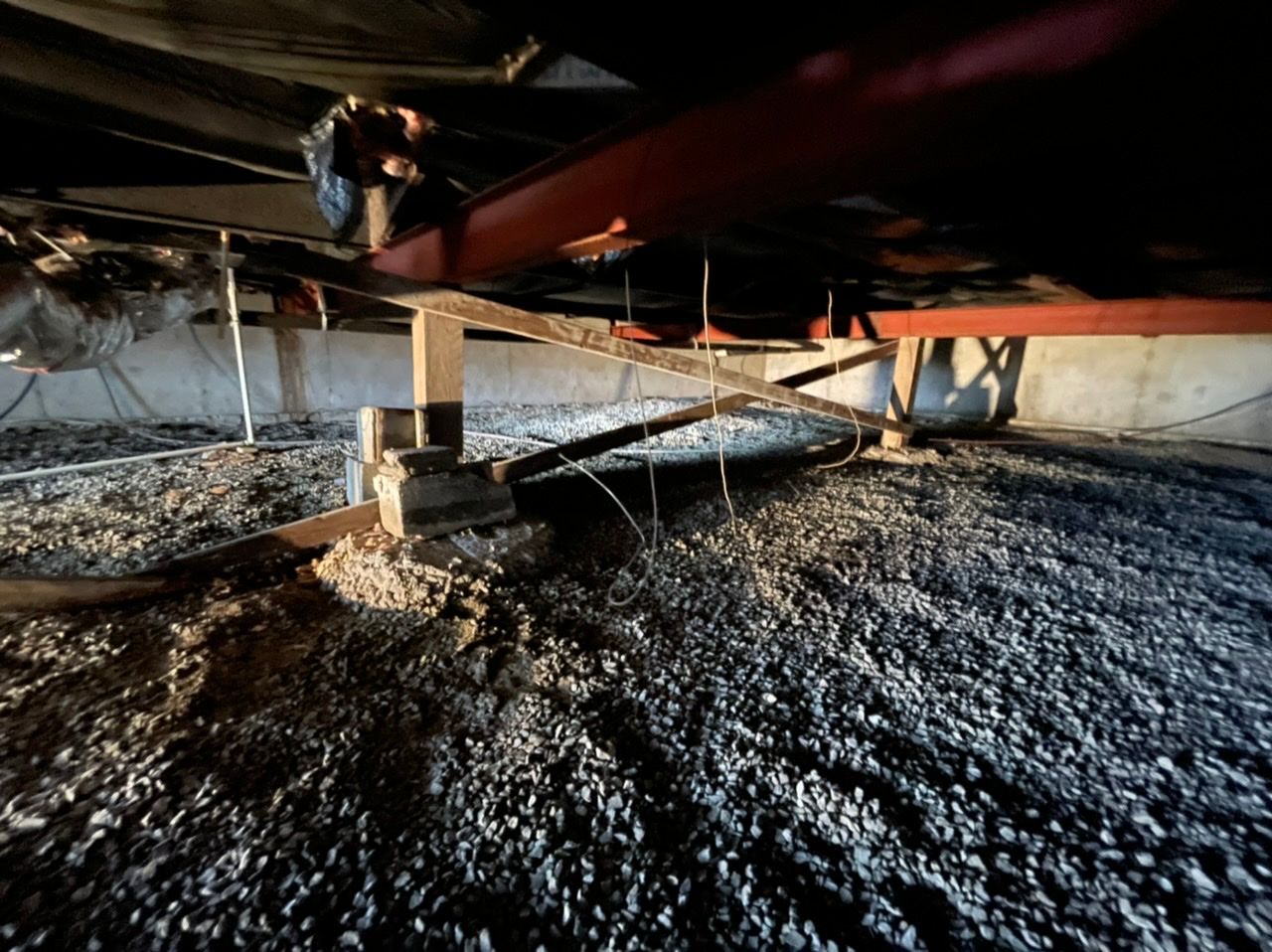10 Effective Ways to Stop Water Leaking Into Your Basement When Raining
Have you been experiencing a lot of water leaks in your basement lately?

Basement leaks are a common problem among homeowners, especially in the Kansas City area with the clay soil. Many homeowners find their basements filled with water when it's raining or after heavy rain, which is a primary symptom of basement leaks. Another way that basements can experience water issues is after a long drought, then the first rain comes, and bam... water is seeping into the basement through cracks developed after the drought.
Here we'll discover 10 effective ways to stop water from leaking into your basement.
If your basement leaks while raining or after the rain, this article is for you. Keep on reading to know the best solutions to your problem.
#1: Clear Gutters and Downspouts
Your roof is the main collection point of rainwater during any rainstorms. If no functional gutter system is made up and maintained through the roof - leaves, debris, and other things can be accumulated over time and can cause blockages within the gutter and downspouts. Those blockages can lead to water overflowing into the ground during rainstorms, seeping into the foundation, and putting your basement & foundation at risk.
That's why having a well-organized and functional gutter system is very important. It can help throw water and other things away in the right direction.
Plus, regularly inspecting any piled-up junk in your gutter & downspouts and clearing them can help prevent any blockages. This will eventually prevent any water damage possibility, causing you a leaky basement in the future.
#2: Improve Basement Ventilation
Another effective way to stop water leaking into your basement during the rainy seasons is by building good basement ventilation. Poor ventilation can cause mold and mildew, eventually affecting your overall basement health, accumulating water and seeping through the foundation.
That's why building a good ventilation system in the basement is very important. So enough airflow can circulate throughout the space, reducing any moisture buildup.
#3: Seal Foundation Cracks
Foundation cracks can happen over time because of poor maintenance, soil settling, or temperature changes. Waters can seep in through those cracks & leaks in rainy seasons, accumulating into the basement eventually.
To avoid water leaking into your basement when raining, you'll need to check it up often. And, if you notice any signs of cracks, you should instantly seal them with strong waterproofing sealants or epoxy.
#4: Insulate Pipes
Condensation can also cause water seepage into the basement during rainstorms. That's why it's very important to cover those cold pipes with foam pipe insulation to stop condensation from happening. This is an easy and cost-effective way to avoid water leakage on cold pipes by condensation issues.
Simply buy foam pipe insulation from any hardware store and wrap it around the pipes.
#5: Insulate Basement Walls
Properly insulating the basement wall is another popular way to avoid water leaking into the basement. Insulating the walls creates an extra barrier on the wall to let any moisture penetrate in. This reduces the chance of water seeping in during heavy rains.
You can insulate your basement walls with the board foam insulation method. It's relatively easy and cost-effective. Also, insulating basement walls reduces energy bills in cold climates.
#6: Paint-on Waterproofing Coatings
If you want a more permanent way to stop water leaking, waterproofing the basement walls using a waterproofing coating is the better choice. Apply the coatings on the bare concrete or masonry to make it more effective on the surface.
Start with cleaning the wall with a wire brush. Then use the masonry cleaner to remove any white powder on the wall. Finally, apply the coatings with a painting brush or roller.
#7: Install a French Drain
Do you not have a working footing drain in your house? And are you experiencing basement flooding all of a sudden? Installing the famous alternative of the footing drain, the french drain, can be a great way to redirect the water on the right path.
The French drainage system includes digging a trench around your basement, placing perforated pipes carefully, and covering them with soil. The French drain captures the waters that could potentially seep into your basement.
#8: Install Window Well Covers
Drainage issues in window wells can be another potential cause of water leakage. If your basement has windows and exterior window wells included, then covering them with a window well is necessary.
Because leaves & debris can be piled over time, clog up the window well, and hamper its water drainage quality. In rainstorms, those waters can find a way to seep into the basement through any weak points.
Water stains on the wall are a potential sign of leaking basement windows.
#9: Install a Sump Pump
Installing the sump pump is another great way to transfer the flood water into your basement and carry them away. A sump pump works by getting automatically activated when the water level reaches a certain level in the basement. It then transfers all the water away to the right place.
Remember to install the sump pump at the lowest level on the floor. Because the sooner the sump pump can detect water, the faster it'll expel the water out of the place. And there will be less chance of a flooded basement during & after rain.
#10: Improve the Grading of Your Property
Soils around the building's foundation should slope away, directing the water away from the foundation walls and towards the drainage system. For this, you should have approximately 6 inches of slopes built up, downward the angle, within the first 4 feet of your foundation wall.
By ensuring the nice grading of your property, you create a great barrier to unwanted waters, and you can rest assured that there is no chance of those waters seeping and penetrating your basement. It's a very easy and effective way to stop water leakage into your basement.
Causes of Basement Leaks:
● Poor foundation design & waterproofing
● Faulty & poor drainage system
● Improper grading
● Plumbing leaks
● Overflowing gutters or downspouts
● Maintenance neglecting
● Gaps in the foundation walls or floors
If you're experiencing any of these issues, reach out today for a free estimate.





